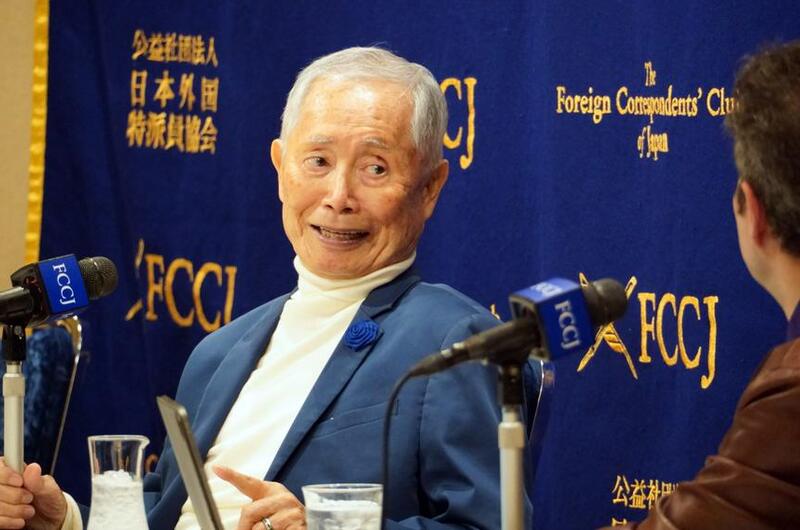‘Star Trek’ actor recalls boyhood detention during WWII in camp for Japanese-Americans

Actor and author George Takei speaks to reporters at the Foreign Correspondents' Club of Japan in Tokyo, Nov. 20, 2025.
By Seth Robson | Stars and Stripes November 20, 2025
TOKYO — George Takei, best known for his role as starship Enterprise helmsman Hikaru Sulu on the science fiction TV and movie series “Star Trek,” gave a Vulcan salute Thursday before speaking at the Foreign Correspondents’ Club of Japan.
The 88-year-old Californian was 5 when he and his family were forced at gunpoint from their home and into an detainment camp, he told a conference room packed with reporters, students and Trekkies.
Takei’s family was among the tens of thousands of Japanese-Americans on the West Coast whom President Franklin Roosevelt ordered forcibly removed to inland camps after Japan’s surprise attack on Pearl Harbor, Dec. 7, 1941.
Takei said he and his family found themselves behind barbed wire at Camp Rohwer, Ark., and later at Tule Lake, Calif.
Meanwhile, young Japanese-American men proved their patriotism serving in the U.S. Army’s 442nd Regimental Combat Team, with the motto “Go For Broke,” he said.
Those soldiers fought with valor in Europe, Takei said. The 442nd is the most decorated unit in U.S. military history for its size and length of service and sustained one of the highest combat casualty rates of the war, according to Arlington National Cemetery’s website.
Takei’s award-winning illustrated children’s book about his wartime experience, “My Lost Freedom,” was published in the United States last year. A translated version goes on sale this month in Japan.
Takei said he wrote the book for children who are the same age today that he was when he was incarcerated.
His acting career spanned six decades and included appearances in 40 films and hundreds of television episodes.
Between the first two seasons of “Star Trek,” Takei in 1967 filmed “The Green Berets” at Fort Benning, Ga., playing a Vietnamese captain alongside John Wayne, he recalled.
The outspoken social activist with nearly 10 million Facebook followers began campaigning as a teenager for an apology and compensation for Japanese-American detained during World War II. That came in 1988 when President Ronald Reagan signed the Civil Liberties Act.
Immigrant roundups taking place in the United States today “are deeply resonant” of what happened during the war, Takei said.
“Immigration, racism and the failure of political leadership … it’s being repeated,” he said. “We must do everything to stop what’s happening again today because it was horrible.”
Japan’s efforts to reinterpret its pacifist constitution also came under fire from the actor, along with the country’s attitude toward homosexuality. Japan is way behind on gay rights, Takei said.
“The gay rights people here are fighting a very valiant fight, but it’s still way behind what we’ve accomplished (in America),” he said.
After his speech, Takei posed for photographs with fans, turning a hallway outside the conference room into a mini sci-fi convention.



